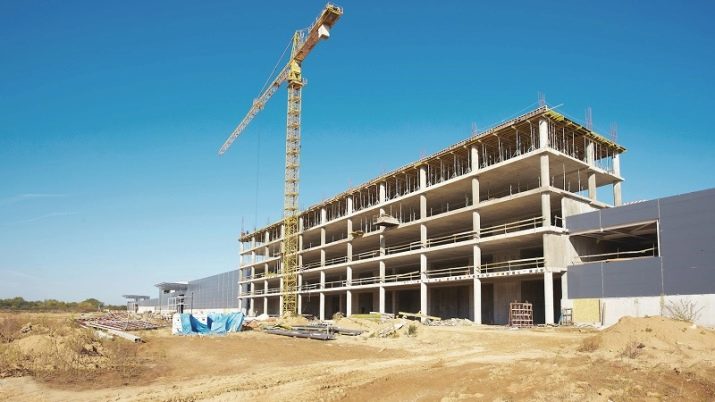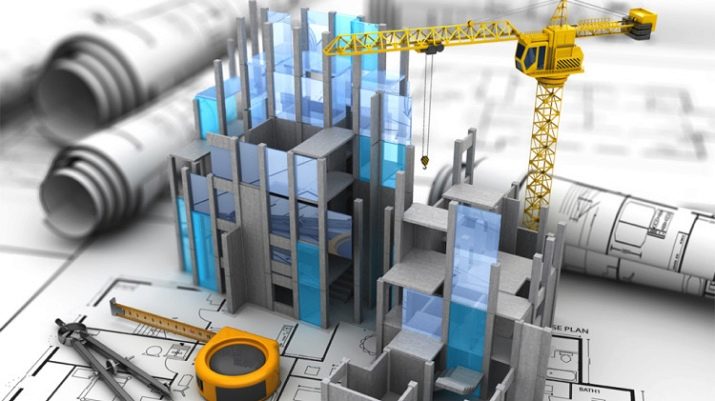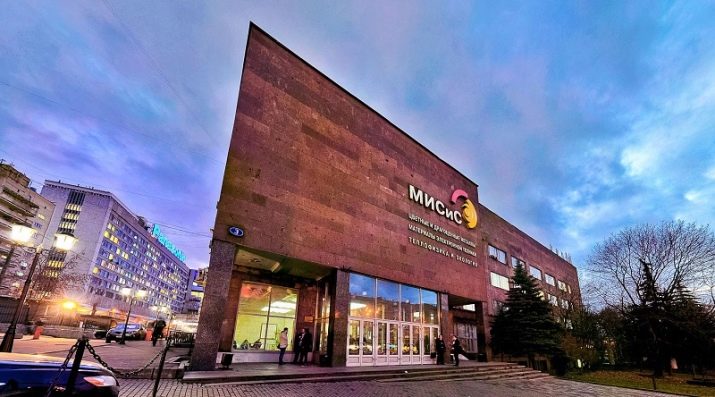Who is a developer and what does he do?

Some people confuse developers with builders, but in vain. The term itself came to the Russian language from English and means "to develop". The developer's goal is to make a profit... There are several areas of the profession. Typically, real estate market actors buy land or a building, improve and later sell at higher prices.

Who is that?
In simple words, then the developer buys something and tries to improve and develop it as much as possible. All this is done with one goal - to sell at a higher price. In construction, such activities are extremely common. The range of responsibilities is very wide:
- acquisition of land or an object, determination of its potential;
- market analysis for effective use of purchases;
- creating an initial plan for a future project;
- formation of the concept of the object and sketches of the project;
- obtaining all the necessary documents to start construction;
- control of all stages of the plan implementation;
- marketing research;
- renting out an object;
- sale of a finished building or plot.
A construction professional is also involved in solving all ongoing financial issues. It is the specialist who must find investors, calculate all costs and risks. The developer communicates with banks if it is necessary to take out a loan for construction. It is also necessary to coordinate the project in various instances. There are few professional developers in Russia, so the competition is low.
The lack of specialists is due to the fact that a lot of knowledge is required in various fields. At the same time, the profession is well paid and quite in demand.The developer can do interesting projects, so the work is usually enjoyable. At the same time, there has been a recent crisis in the real estate market. This trend has a negative impact on developers as well.
The work itself is fraught with a lot of day-to-day stress. Mistakes in this work usually lead to large financial losses. This means that professional experience is extremely important.


Differences from the developer
Misunderstanding of terms often leads to serious confusion. The developer is the owner of the project, the temporary owner of the object. As a result, the process can also be called a purchase for the purpose of improvement and development. However, the developer is different from the builders. Developer - legal definition... According to the law, this is the person who is responsible. But a developer is an economic term. This specialist is an entrepreneur. The difference is that the main task of the developer is to increase the value of the building or land.
It is important to understand that formally, the developer is responsible for the quality of the final result. The developer himself attracts investors, provides advertising and deals with the final implementation. Rarely does such a specialist act as a developer; these are completely different areas of activity. Only large concerns or corporations can work in several directions at once. There are other forms of work in interregional markets. A large development company may have several development companies in the regions. In this case, the head office is responsible for information and advertising support. Small companies are directly involved in construction.
So, developers and builders can overlap. They always work together, but they are responsible for different processes. In the event of serious violations, it is the developer who will be responsible for the poor-quality construction.
However, the developer must ensure the correct design of the building and its implementation. He will also be held liable if the latter does not bring proper profit.

Varieties and responsibilities
The developer is engaged in increasing the value of the property. However, there are several areas of the profession. The difference lies in the ways of finding investors. Let's list the main types of developers.
- Speculative... The developer himself acts as an investor. Personal funds of a specialist or bank loans are used to implement the project. In this case, the developer independently finances the selected project, organizes and supervises construction work. At the end, the specialist looks for buyers or tenants for the property. This type of activity is usually used in the construction of shopping and entertainment complexes. A speculative developer assumes all risks and ultimately receives all the profits.
- BTS development. This kind of activity is quite simple but interesting. The activities of a specialist are carried out directly for the customer. This reduces some of the risk. The developer does not have to look for a buyer after the project is ready. Loosely translated, this means "custom-built construction". The scheme of work is very different from the previous version. An investor contacts a developer with an order for the construction of a certain object. For example: a company invests in building a house for its workers. A development company in such a situation should have many different specialists or connections with them. So, you will have to engage in design and consultation, as well as the construction itself. In some cases, the investor already has a project, so the developer performs only the last two functions.
- Fee development. This concept means development for reward. The type of activity implies a full development cycle, which is implemented with funds from investors.A person or company can simply come to a developer and ask them to invest their funds at their discretion. In this case, the specialist must select an option for investing in the construction or reconstruction of the facility so that the investor gets the maximum benefit. The developer himself receives the reward.

Development is divided not only by the method of attracting investors. A specialist can work with a specific type of real estate. It is worth noting that large companies usually occupy all niches.
- Country houses. Activities in luxury real estate are considered to be quite promising and interesting. The developer, in this case, develops exclusively residential buildings outside the city.
- Commercial real estate... Industrial professionals make most of their profits by renting out finished premises. The scale may vary. Thus, a developer can develop both warehouse premises and facilities for factories and production facilities.
- Plots of land. This type of work is associated with high risk, and the implementation of the project is time-consuming. The development company acquires the site and develops it. Specialists improve the territory, draw up documents, carry out various communications. Subsequently, the land is divided into building plots. The end customer receives comfortable platforms with all the necessary documents.
- Residential Properties... Not only construction is possible here, but also reconstruction. It is this type of earnings that is considered the most common. Experts assess a combination of factors that affect the final cost of housing. Usually, the environmental friendliness of the territory where the construction will take place is taken into account. It is also important to find a well-developed infrastructure nearby. Additionally, the developer predicts the approximate level of income of those who will buy housing in the house.
Large companies can seize all types of real estate at once and attract investors. However, more often than not, developers choose a specific niche and develop in it. There are not so many speculative specialists, because a good start-up capital is required, and the risks are much higher. The same applies to land developers.

Requirements
The work of developers requires large investments in themselves - as in a specialist. A professional must have knowledge in several areas at once. In this case, personal qualities also play an important role. Work is connected with communication with different people, with a lot of constant stress.
Personal qualities
Resistance to stress and an analytical mind are very important in the profession.... Also, a specialist must be purposeful, have organizational skills and leadership qualities. Organizational and administrative activities are very important for a developer. Thus, a specialist must be able to select a team and organize its work. You will also have to communicate a lot with representatives of various instances, where you need endurance, the ability to convince.
The developer can hire assistants, which compensates for the lack of knowledge in any areas. However, you need to be able to choose the right staff. This will require not only personal skills, but also experience.
The profession is fraught with risks, which means that a specialist must be able to calculate them and take responsibility.

Knowledge and skills
A successful business requires a developer to multitask. You need to be able to correctly assess the current state of the real estate market. A professional can analyze trends in this volatile area and draw the right conclusions. You should be able to make a decision in time to change the profile of an object. It is important not only to do this, but also to organize the whole process correctly.
Fast decisions based on analytical data can increase the profitability of the project. To do this, the developer must have at least theoretical engineering and construction knowledge, and it is better to have practice in this area.A professional must have a higher education: economic, legal or technical. Additionally, knowledge of construction technology, a deep understanding of the real estate market are required.
A qualified developer must thoroughly know all the legal, financial, engineering and construction subtleties of work. Additionally, the specialist needs to understand advertising and marketing. Usually every developer has knowledge of architecture. For the organization and implementation of the project, it is important to be able to legally formalize all transactions and stages.

Education
Becoming a developer is not easy at all. First you need to get a higher education. Only then can one begin to develop in the profession. Let's list the best universities.
- Moscow Open Institute. Better to go to the "Construction" department.
- Moscow Academy of Entrepreneurship under the Government of Moscow. Here you can unlearn to be an economist.
- MosGU. The specialty "Enterprise Economics" is excellent.
- MISIS... And here you can get an economic education.
- NRU "MPEI". Branch "Economics" will be the most successful option in this institution.
In Russia, development is developing gradually. This is precisely why a small number of qualified specialists are connected. Usually people come to this area from the construction business. A developer can be a designer or a project manager. But you will have to constantly study in this area.
Those who can achieve great success who received a higher education in economics, construction or finance. Less often, graduates of technical faculties come to the real estate sector. There is no separate specialization in any institute, so you should look for similar ones in meaning.
The profession is multifaceted, so you will need knowledge in the field of law, business and engineering.

The specialist will not be prevented by education in the field of marketing. Today there are many successful developers with technical degrees. However, it will not be possible to confine oneself only to the institute. We'll have to go to English courses and do professional development. Business administration (MBA) specialization won't hurt. This will help to correctly calculate finances, to recognize prospects. Also, a developer must be able to establish and use connections, attract investors. Additionally, you will have to activate managerial skills in order to coordinate the activities of other participants in the process.
A great advantage for a professional will be IPP (Individual Professional Project). These are real-life internships. They provide hands-on experience. The latter is very much appreciated in the profession. Developers without experience are not trusted, because the risks are too great. There is also a School of Managers "Arsenal"... There, on the course "Property Management" there is an opportunity to gain basic knowledge of the specialty. After obtaining the minimum skills, you can go to a development company.
They usually train their employees on their own. This allows the firm to nurture a good specialist, which is easier than the initial search for a qualified employee.

The salary
Project management in this area is associated with the responsibility for the success of a multi-million dollar business. Professionals work hard and hard, which is fully compensated in case of a successful project. There are few developers with good knowledge, so large companies often offer additional bonuses and a social package. The salary in Russia is 25,000–100,000 rubles, in Moscow - 40,000–160,000 rubles.
In this case, the payment is formed from two parts: bets and bonuses. The first is negotiated in advance and does not change depending on the project. But bonuses consist of a percentage of the total cost of the object. At the same time, much depends on the place of work and qualifications. In a large company, they usually pay more, especially if they have the necessary knowledge and experience. Small firms are engaged in smaller projects, which means that the payment will differ.However, in the latter case, there will be fewer risks and less responsibility. When choosing, you should focus on your own knowledge and skills.
With the proper experience, you may not work for the firm at all. The developer can simply assemble his own team of specialists and conduct business activities. In this case, the level of income depends solely on the specialist. However, the risks in such a situation also fall on the developer, and not on the company. In the event of a failed project, the costs will be very high.

Career and prospects
Development in this area depends on many factors. The career is very specific. Usually the developer already has experience in managing several projects. A specialist can independently hire qualified workers and take maximum responsibility. The main perspective is to start your own business. Alternatively, you can consider a seat on the board of directors of a large company. Usually, development starts with work in the fee-development format. Completing tasks from large investors will allow you to make a name for yourself on successful projects.
Over time, customers will be imbued with trust, and it will be possible to develop fully independent activities. In this case, a speculative type of activity is used. In this case, the profit grows tens and hundreds of times, and with it the risks. Here are some examples of successful Russian companies.
- PIK Group, Moscow. The company is a leader and builds about 7.4 million m2 of real estate of various types.
- LSR Group, St. Petersburg. The volume of construction is also amazing - about 4.1 million m2.
- YugStroyInvest Group, Stavropol Territory. The company has built about 1.5 million m2.
However, one should not assume that construction volumes alone play a key role in determining the leader. In fact, the indicator is important, but not the key one. Some companies attract more customers and have better profits due to balanced business conduct. When choosing a line of development, it is important to determine how much the specialist wants to take on high risks. If there are a lot of unsuccessful projects, then clients will simply stop trusting. This will lead to the death of the company.
In some cases, it is much more promising to move from a good position in a large corporation. In this case, the developer will never be left alone with the problems and difficulties of the real estate sector.









